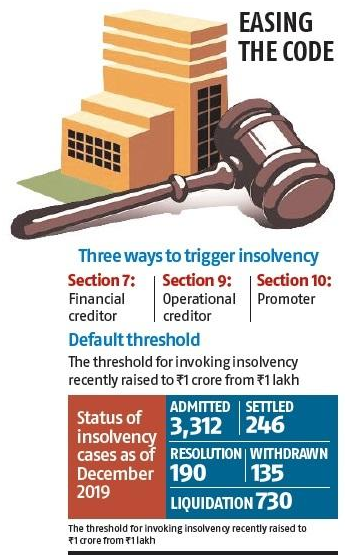 The Ministry of Corporate Affairs has introduced the “Companies Fresh Start Scheme, 2020” and revised the “LLP Settlement Scheme, 2020” which is already in vogue to provide a first of its kind opportunity to both companies and LLPs to make good any filing related defaults, irrespective of the duration of default, and make a fresh start as a fully compliant entity.
The Ministry of Corporate Affairs has introduced the “Companies Fresh Start Scheme, 2020” and revised the “LLP Settlement Scheme, 2020” which is already in vogue to provide a first of its kind opportunity to both companies and LLPs to make good any filing related defaults, irrespective of the duration of default, and make a fresh start as a fully compliant entity.
The Fresh Start scheme and modified LLP Settlement Scheme provide relief to law abiding companies and the Limited Liability Partnerships (LLPs) amid COVID-19 pandemic.
One Time Opportunity
The USP of both the schemes is a one-time waiver of additional filing fees for delayed filings by the companies or LLPs with the Registrar of Companies during the currency of the Schemes, i.e. during the period starting from 1st April 2020 and ending on 30th September 2020.
Fee Payable for CFSS
Only normal fees for filing of documents in the MCA-21 registry will be payable in such case during the currency or CFSS-2020. There will not be any additional fee for any documents.
Every defaulting company shall be required to pay normal fees as prescribed under the Companies (Registration Offices and FCC) Rules, 2014 on the date of filing of each belated document and no additional fee shall be payable.
Dormant Company
The scheme gives an opportunity to inactive companies to get their companies declared as ‘dormant company’ under Section 455 of the Act by filing a simple application at a normal fee.
Details of CFSS 2020
The scheme shall come into force on the 01.04.2020 and shall remain in force till 30.09.2020
- “Defaulting company” means company defined under the Companies Act, 2013, and which has made default in filing of any or the documents, statement, returns, etc including annual statutory documents on the MCA-21 registry
- “Immunity certificate”‘ means the certificate referred to in subparagraph (viii) of paragraph 6 of the Scheme;
- “Inactive Company” means a company as defined in Explanation (i) to sub-section (l) of section 455(1) of the Companies Act, 2013;
Applicability of CFSS 2020
Any ‘defaulting company’ is permitted to file belated documents which were due for filing on any given date in accordance with the provisions of this Scheme.
Immunity from the launch of prosecution or proceedings for imposing penalty shall be provided only to the extent such prosecution or the proceedings for imposing penalty under the Act pertain to any delay associated with the filings of belated documents.
The Ministry received much representation from the stakeholders to provide a one-time opportunity to file all the pending documents including the annual filing of the company without charging higher additional fees on any delay. The Scheme provides the above opportunity to the inactive company to convert into a dormant company under section 455 of Companies Act, 2013 by filing form MSC-1 with nominal fees & help the inactive companies to remain on ROCs register with minimum compliance requirements.
The defaulting company shall be required to file the belated documents including annual filing by paying nominal fees (without including Additional Fees) as per Companies (Registration Offices and Feel Rules, 2014) as prescribed under the Companies Act, on the date of filing of each belated document.
Both the Schemes also contain a provision for giving immunity from penal proceedings, including against imposition of penalties for late submissions and also provide additional time for filing appeals before the concerned Regional Directors against the imposition of penalties, if already imposed. However, the immunity is only against delayed filings in MCA 21 and not against any substantive violation of the law.
Application for issue of immunity under the CFSS
An application for seeking immunity in respect of belated documents can be filed under the Scheme in the Form CFSS-2020, after closure of the Scheme and after the document(s) are taken on file, or on record or approved by the Designated authority as the case may be but not after the expiry of six months from the date of closure of the Scheme. There is no fee payable on this Form.
Provided also that no immunity shall provide in case any court has ordered conviction in any matter, or an order imposing penalty has been passed by an adjudicating authority under the Act and no appeal has been preferred against such orders of the court or of the adjudicating authority.
Immunity certificate under CFSS-2020
Based on the declaration made in the Form CFS-S-2020, an immunity certificate in respect of documents filed under this Scheme shall be issued by the designated authority.
Effect of immunity
After granting the immunity, the ROC office shall withdraw the prosecution(s) and the proceedings of adjudication of penalties under section 454 of the Act, if any, in respect of defaults against which immunity has been so granted and shall be deemed to have been completed without any further action.
Any other consequential proceedings, including any proceedings involving interests of any shareholder or any other person of the company for its directors or key managerial personnel, would not be covered by such Immunity. If the company appeals against any order of prosecution for penalty passed by the competent court or adjudicating authority, then the company first needs to withdraw its application of appeal and furnish the proof of withdrawal to avail immunity in this CFSS 2020 scheme.
Scheme not to apply
This scheme shall not apply
- to companies against which action for final notice for striking off the name u/s 248 of the Act (previously section 560 of Companies Act, 1956 has already been initiated by the ROC.
- where any application has already been filed by the companies for action of striking off the name of the company from the register of companies;
- to companies which have amalgamated under a scheme of arrangement or compromise under the Act;
- where applications have already been filed for obtaining Dormant Status under section 455 of the Act before this Scheme;
- to vanishing companies;
- Where any increase in Authorized Capital is involved (Form SH7);
- also Charge related documents (CHG-I, CHG-A. CHG-8 and CHG-9).
The defaulting inactive companies while filing documents under CFSS-2020 can simultaneously apply for the following actions :
- Apply to get themselves declared as Dormant Company under section 455 of the Companies Act, 2013 by filing e-form MSC-I at a normal fee on said form; or
- Apply for striking off the name of the company by filing e-Form STK-2 by paying the fee payable on form STK-2.

 Further, all trusts/charitable institutions already having approval or registration were also supposed to file applications for renewal of there registration/approval within 3 months of new law coming into force, i.e. August 31, 2020.
Further, all trusts/charitable institutions already having approval or registration were also supposed to file applications for renewal of there registration/approval within 3 months of new law coming into force, i.e. August 31, 2020.





